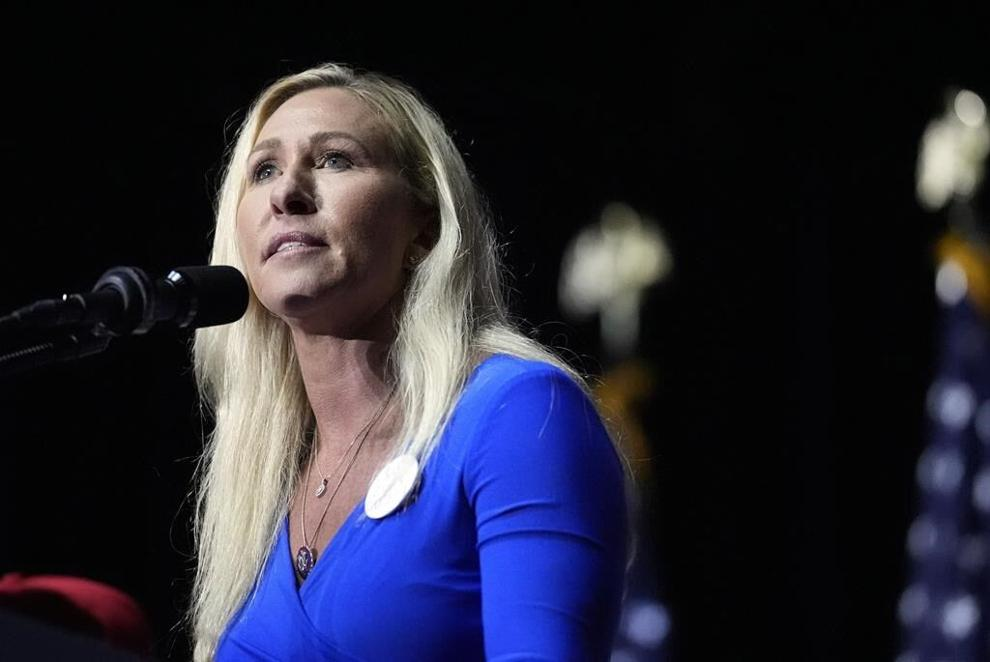
Rep. Marjorie Taylor Greene, R-Ga., speaks before Republican presidential candidate former President Donald Trump at a campaign rally Saturday, March 9, 2024, in Rome Ga. (AP Photo/Mike Stewart)
The future of House Speaker Mike Johnson is in jeopardy as Rep. Marjorie Taylor Greene has initiated a motion to vacate his position, following his support for a $1.2 trillion spending bill with Democratic votes. This move sets the stage for a potential ousting of Johnson from his leadership role.
Greene, a vocal critic of Johnson, filed a resolution called a motion to vacate, which, if approved by the House, would remove Johnson from office. While Greene did not immediately call for a vote on the resolution, she stated that the process to elect a new speaker has begun, signaling a warning to Johnson.
Johnson's spokesperson defended his actions, emphasizing his commitment to conservative principles and governance. However, Greene's challenge highlights growing discontent within the Republican Party over Johnson's leadership decisions, particularly his cooperation with Democrats on key legislative matters.
The motion to vacate is a rarely used procedure in the House, allowing any member to introduce a resolution to declare the office of the speaker vacant. Historically, such motions have been rare, but the successful removal of former Speaker Kevin McCarthy last October demonstrated its potential impact.
The process to remove a speaker involves introducing a privileged resolution, which takes precedence over other legislative matters. Once introduced, a vote must be scheduled within two legislative days, with a simple majority needed to remove the speaker from office.
Greene's move against Johnson underscores the divisions within the Republican Party, with some members expressing reluctance to support her resolution. Concerns have been raised about the potential consequences of another leadership upheaval, particularly in an election year.
Johnson's leadership has faced scrutiny since assuming the role just six months ago, following a period of internal party strife. Despite efforts to unite the party, his decision to collaborate with Democrats on certain issues has drawn criticism from the conservative wing of the party.
The motion to vacate poses a significant challenge to Johnson's leadership and could have implications for legislative priorities in the House. With tensions rising within the Republican ranks, the outcome of the motion remains uncertain, leaving the future of Johnson's speakership in question.















